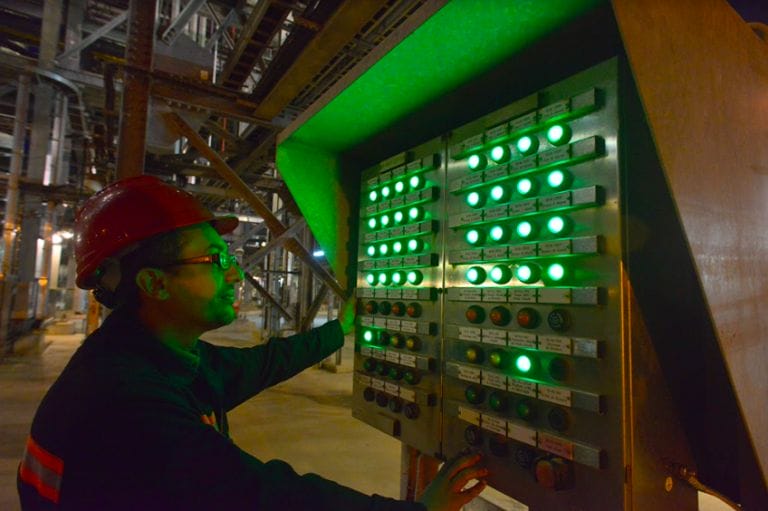Exclusive interview with Jay Ibrahim, President of KBR in EMEA region
Over the last few years, KBR Inc. has been executing a deliberate strategy of expansion in the EMEA region, building on its already distinguished history of success from the North Sea to the Arabian Peninsula.
To oversee the company’s growth in the region, Jay Ibrahim joined KBR in 2015 and now serves as President of EMEA. Born and raised in Lebanon, Jay was educated in the United States and is a citizen. He has 22 years of professional experience in EMEA and is a respected figure with a deep understanding of the region.
He is managing an expansion that is focused around KBR establishing itself as a major player in various countries – growing the company’s base business, being closer to clients, and expanding core markets in upstream oil and gas, LNG, fertilizers, petrochemicals and industrial services. This vision is driven by an integrated strategy to build a high performance culture that strengthens business acumen and fosters profit growth.
To build that high performance culture, Ibrahim strengthened leadership and supervision, empowered people and built a culture of accountability among employees, subcontractors and partners. He also placed an emphasis on identifying best practices through the gathering and sharing of lessons learned.
Ibrahim is quick to point out that at the core of this expansion strategy, it is KBR’s people, technology, and innovation that are driving the success.
“I am constantly impressed with the talent of our people and the project delivery track record of the company,” said Ibrahim. “Every member of KBR’s team is dedicated to growing and developing the business.”
“We are also a company that is firmly rooted in a culture of innovation,” he continued. “We are one of the few companies in our industry that has been able to capitalize on this culture of innovation in the way that we execute projects.”
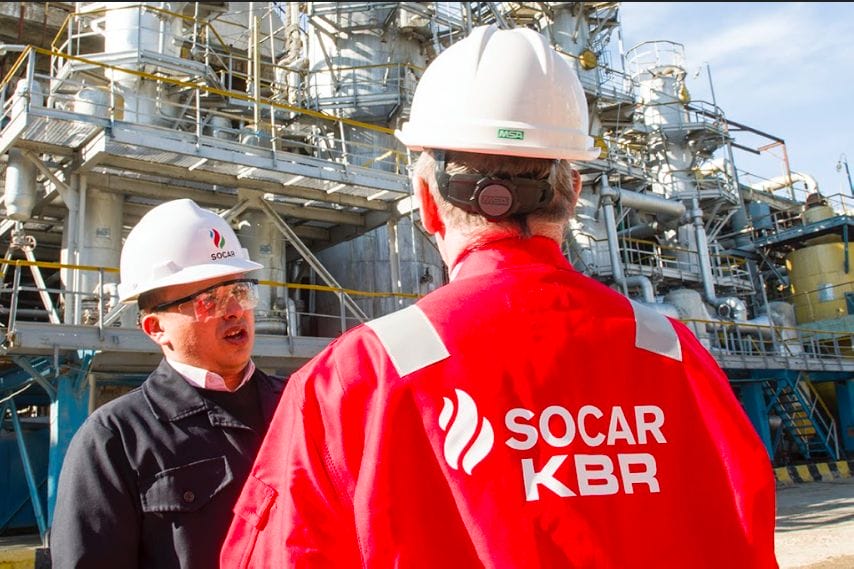
According to Ibrahim, the motto behind that culture of innovation is that there is a new market that needs new solutions and KBR is uniquely suited to provide them. KBR has long been at the forefront of increasing efficiency and outcomes through innovative project execution.
One result of that innovation culture is KBR’s SmartSPEND work process. In the face of higher project execution costs and uncertainty, capital efficiency is crucial. The optimal time to reduce CAPEX and set the right contracting and execution philosophy is during the Pre-FEED and FEED phases of a project.
KBR’s SmartSPEND quantitatively evaluates additions to a predefined, minimized design and execution strategy. This drives critical decisions early in the project to assure maximum realization of benefits. The result is a project configured to be the lowest CAPEX, highest value project scope and execution possible for the specified requirements.
“SmartSPEND helps clients weigh the economic impact of the decisions they make over the entire life-cycle of a project – from design to construction to operations and maintenance – to ensure they get the highest economic return on their capital,” Ibrahim explains.
KBR is also leading the way on the digitalization front with its digital solutions offerings.
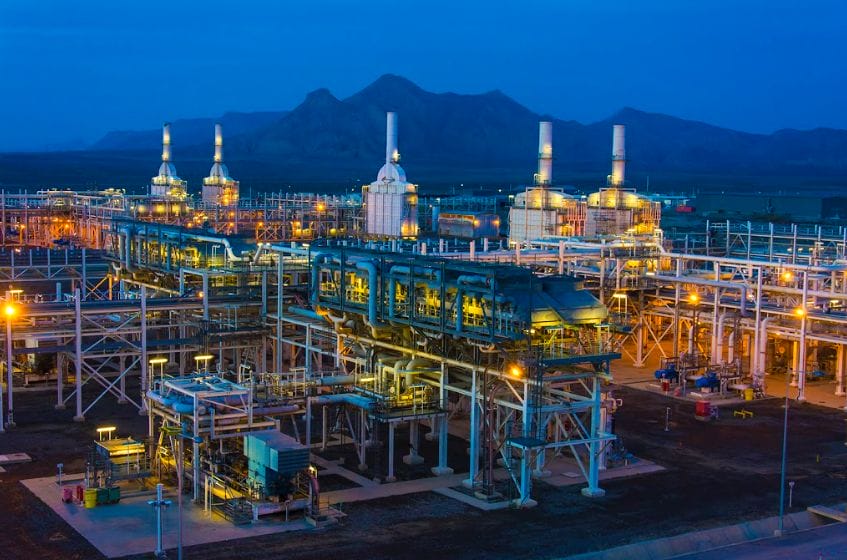
Azerbaijan
The company recently announced a partnership with IBM to collaborate on the development of innovative digital products and services to reduce costs and increase profit, reliability and safety for oil and gas and petrochemical customers.
While those traditionally risk-averse industries have been slow to accept and adopt digital solutions, there is a growing imperative for change as companies are searching for efficiencies wherever they can find them.
In today’s market chemical and petroleum organizations are realizing they require new levels of innovation and digital solutions to improve and enhance exploration and production, promote project capital and execution efficiency, and optimize operations, maintenance and safety.
By recognizing the emergence of this trend in today’s new market and teaming with a strategic partner for innovation, KBR is well-positioned to provide new solutions to meet those needs.
“We are excited about our alliance with IBM because it combines the complementary skill- sets, know-how and intellectual properties of two leading hydrocarbons and technology companies,” Ibrahim said. “These new digital solutions will have game-changing applications for predictive maintenance, remote operations monitoring and safety leading to maximum economic value for customers.”
KBR is also using technology and digitalization to improve predictability of cost and schedule.
KBR broke the link between hard deliverables by tracking how its engineering data matures through a ‘stage build’ process that starts at the concept stage and progresses into the various phases of a project until the handover stage. Interlinking systems design, engineering modeling and procurement allows KBR to support ongoing maintenance activities with a one stop shop approach to support planned, unplanned and critical maintenance activities. By combining a data centric approach to engineering, with procurement and construction management systems, KBR is able to release construction activity earlier than planned, manage change through the stage gate design build and freeze process. This ensures field and fabricator productivity is managed through early visibility or early work fronts and allows early mitigation of holds to potential planned work fronts.
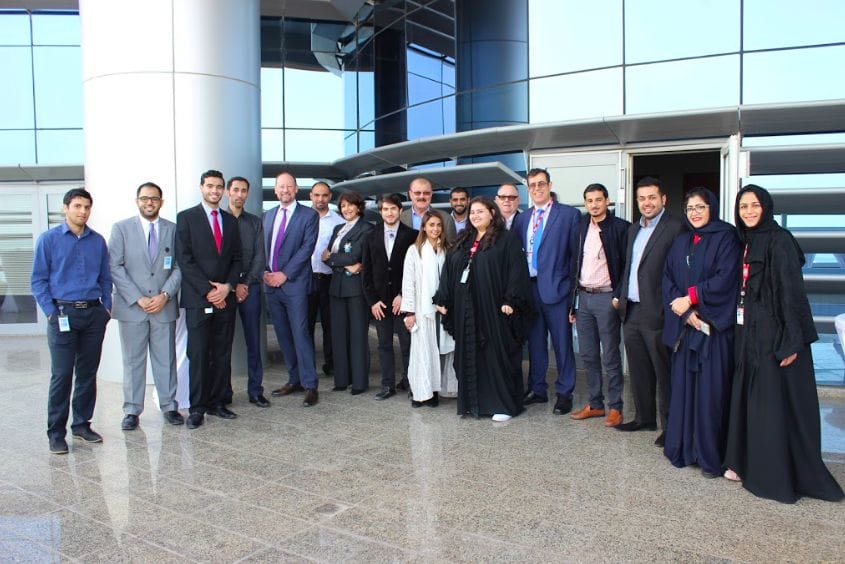
While Ibrahim talks at length and with great pride about KBR’s innovation, he stresses that it’s the people who design and execute those innovations that are the company’s most important asset and that KBR devotes significant resources to attract and develop them.
“We are very much a people-driven business and we put a premium on developing our people,” explains Ibrahim.
“I think high caliber individuals are naturally attracted to working with the best,” he continued. “In terms of retaining and growing these individuals, we make a concerted effort to identify young talent, and provide structured training and development programs for these future leaders.”
Ibrahim explains that KBR has various recruitment and referral programs to identify the sought after resources and bring them into the KBR family. These programs include internal and external professional development course, assigning dedicated mentors, professional development organizations, apprenticeships, and activities like ‘lunch and learn’ sessions.
One key program is IMPACT which provides KBR’s young professionals opportunities for leadership development, networking, and community service.
One of KBR’s leading core values is the belief in a responsibility to positively impact the communities in which they live and work. IMPACT is often at the forefront of KBR’s efforts to implement that belief.
For instance, KBR’s IMPACT chapter in Saudi Arabia recently led an effort to replace the hard drives on used KBR computers so that they could be donated to a local charity to use in a newly opened kindergarten class.
Beyond working with local charities, KBR believes that making a positive impact on communities includes leaving a sustainable legacy by creating jobs, providing education and training, and employing the local community.
That’s why KBR’s personal development and mentoring programs play a major role in providing theoretical and hands on training for locals in country.
Additionally, in Saudi Arabia, they have a local joint venture to perform the engineering services for Saudi Aramco, SABIC and other clients and another partner to perform industrial services.
In Azerbaijan, KBR teamed up with SOCAR to provide engineering and management services in the region. In Algeria, they used local subcontractors to provide the construction services for the Skikda LNG Project.
As KBR’s expansion in EMEA continues, Ibrahim is keen to point out that KBR, with its wealth of skill and expertise supported by a culture of innovation, is uniquely suited to succeed in the region.
“We are committed to expanding our footprint in the EMEA region and to positively impacting the communities we live in and work with,” said Ibrahim. “And we have the right culture, expertise, and people to deliver on that promise.”
Iconic KBR Projects in EMEA
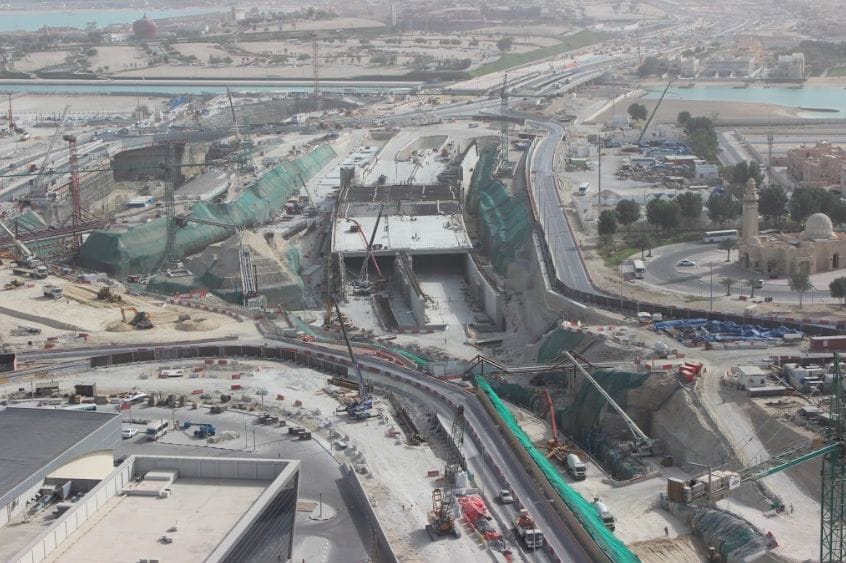
KBR has engaged in some of the largest and most challenging projects in the world. From the Skikda LNG project in Algeria, to Shell GTL project in Qatar, Shah Deniz Stage 2 in Azerbaijan, Yas Island in Abu Dhabi, Chevron GTL project in Nigeria and the Qatar Expressway Program in Doha.
KBR’s recent involvement on the Sadara Chemical Project, however, has really solidified its reputation for a unique ability to take on some of the largest, most technically complex projects in some of the most remote locations around the world. The Sadara project, now in the final stages of commissioning, is the world’s largest chemical complex ever built in a single phase, with 26 integrated world-scale manufacturing plants that will produce more than three million tons of products every year.
KBR takes great pride in its contribution to this prestigious project. That contribution includes licensing its proprietary Aniline Technology, assisting in securing finance through U.S. Export-Import Bank financing, development of the project feasibility and pre-FEED for the entire complex and development of the FEED packages for several major assets and ultimately in KBR’s current capacity as part of the integrated project management team on the project.
The Sadara Chemical Complex is truly a remarkable engineering achievement for DOW and Saudi Aramco, something to be seen first-hand to really appreciate the scale of the project. It has been a real privilege for KBR to have been involved in this legacy.
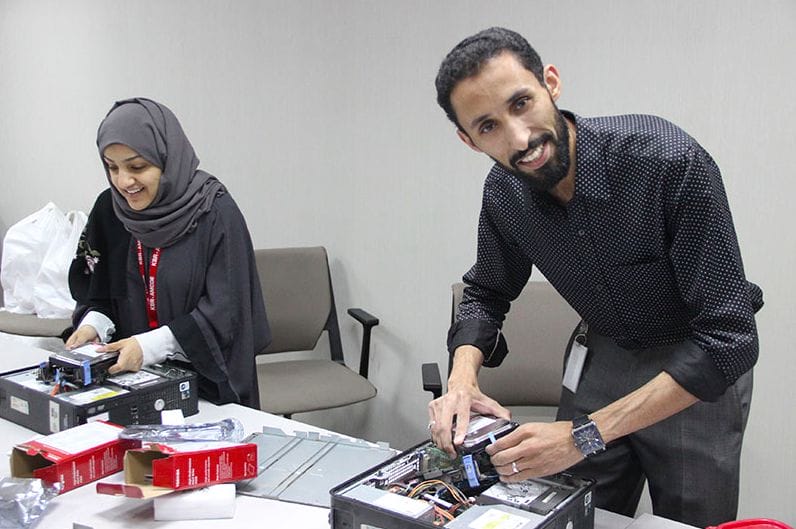
KBR Innovation in Process Technology
Syngas, KBR is now offering clients the world’s largest single-train plant with a capacity of 3500 MTPD. A unique feature of this design is that KBR can offer a single ammonia converter for this capacity unlike its competitors who rely on 2-3 converters in parallel for capacities beyond 2500 MTPD.
In Refining KBR’s Veba Combi Cracking (VCC) Technology is the industry’s leading residue upgrading technology with the capability to process a wide variety of feedstocks from refinery residues to coal. This is truly breakthrough technology that allows refiners to achieve over 95% conversion into high value products like naptha and diesel. The company’s first large scale VCC unit is currently being commissioned in Russia and KBR expects it to generate tremendous interest in both petrochemicals and refining.
In Petrochemicals, KBR’s catalytic olefins technology (K-COT) is leading the way in providing our clients the option to produce olefins using alternate feedstocks. This is especially of value to petrochemical producers in the Middle East as traditional feedstocks like ethane are no longer easily available. K-COT also provides the most optimal integration option between refining and petrochemicals.
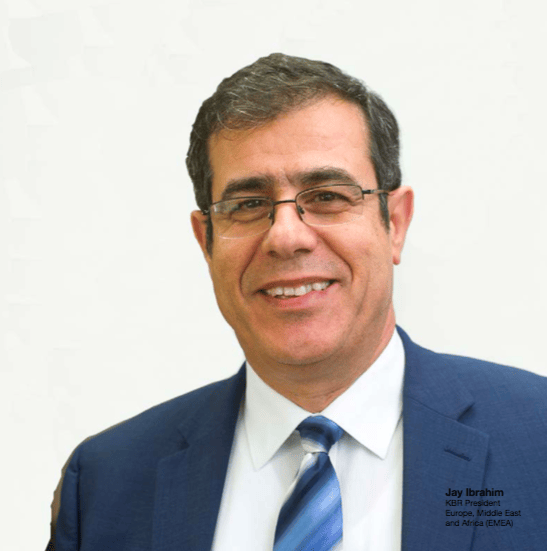
Jay was born in Lebanon where he grew up in a diversified environment which merged the Arabic culture with European influences—a unique and rare experience.
His education was mainly in French and classmates were from many different backgrounds. Back then, everyone was a friend – a principle that Jay has continued to believe in and live every day.
At age 19, with the civil war in Lebanon escalating, Jay’s parents encouraged him to pursue his studies in the United States, where he obtained a Bachelor’s and Master’s degrees in mechanical engineering from Wichita State University in Kansas and then a diploma in advanced management from Harvard University Business School in Massachusetts.
In 1988, he accepted an offer with the global engineering and construction firm Ralph M Parsons (later WorleyParsons) in Pasadena, California. Four years later , he transferred to Kuwait where he stayed for over nine years in various roles including process engineer, engineering manager, and manager of projects. Jay moved to Abu Dhabi in 2003, where he became senior vice president and then managing director.
Living abroad has given Jay’s four children, the youngest eight and fifteen, and the eldest eighteen and twenty one and now studying in America, a broad cultural awareness and the kind
of values he has always aspired to. Jay’s children have been exposed to cultures from all over the world so they’ve grown to be global citizens, understanding and respecting diverse cultures and customs.
Jay joined KBR in May 2015 to oversee KBR’s ongoing expansion in the Middle East and North Africa Region, based in Abu Dhabi. Then, last year he was appointed as President for the Europe, Middle East and Africa Region (EMEA) looking after the Engineering and Construction as well as Government Services business for KBR.
Jay believes being humble is a critical key for success: “Keep an open door policy; the hand shake, the passion, the mojo, the eye contact, are key to achieving the impossible. A handshake and the personal touch mean the world to many people in terms of delivering on a promise.”


